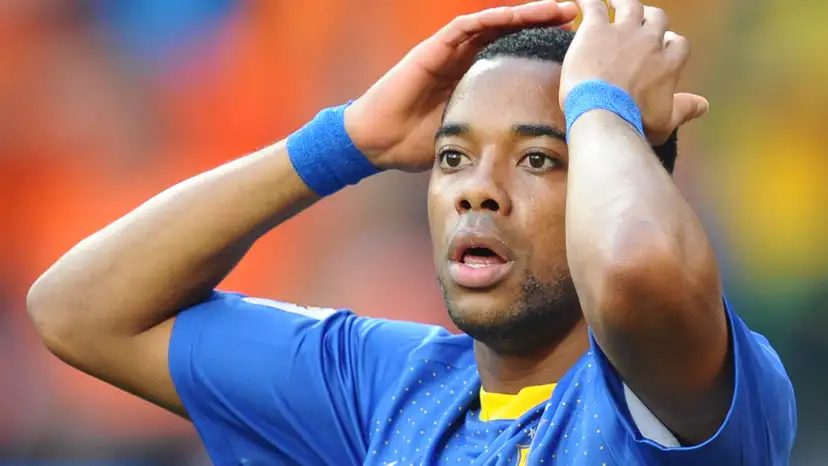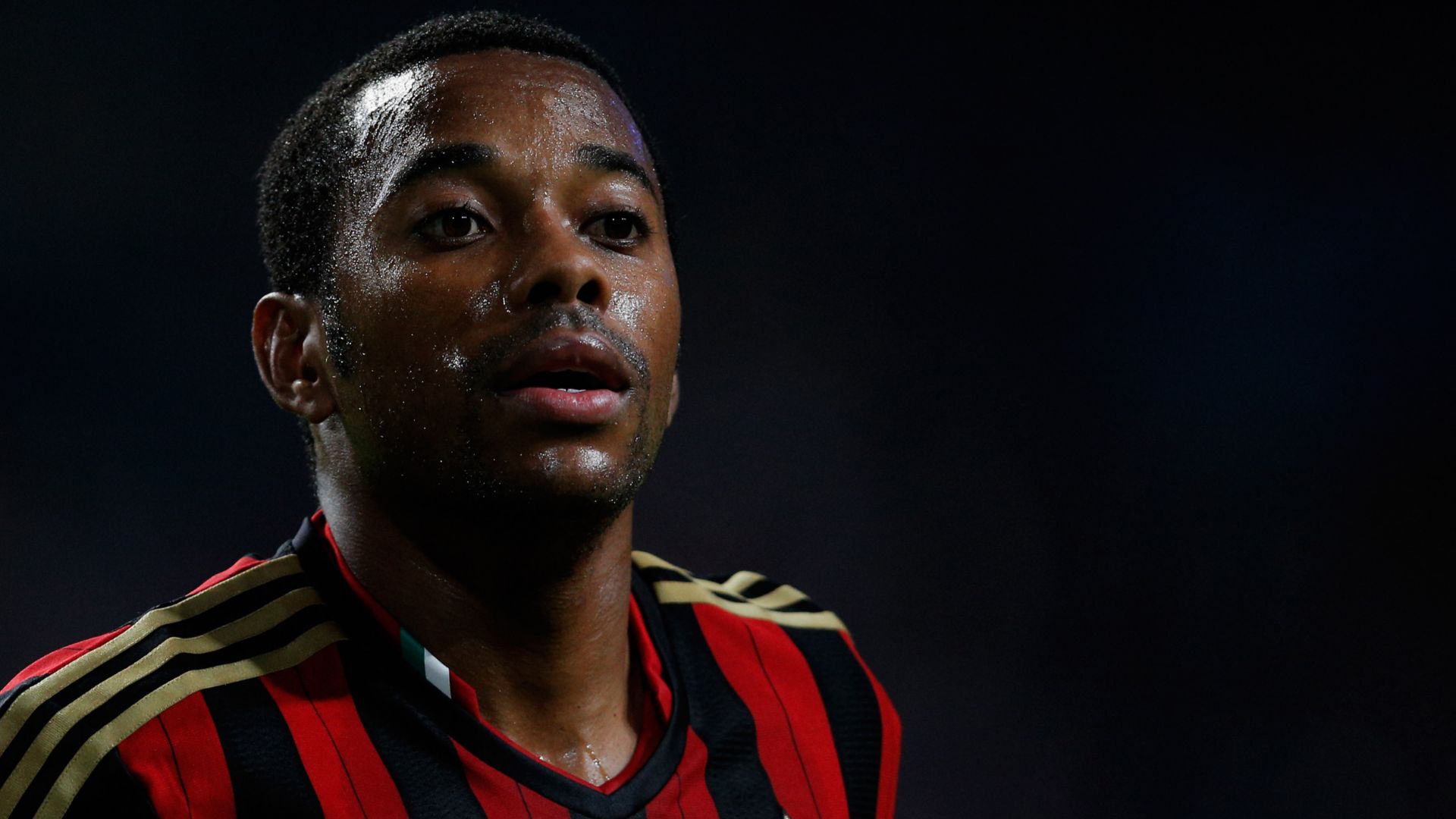
Robinho Appeal Against Nine-Year Prison Sentence Rejected in Brazil
Few footballers have seen their reputations unravel as dramatically as Robinho’s. Once a dazzling winger for Real Madrid, Brazil, and AC Milan, the 41-year-old now finds himself at the centre of a legal saga that has closed the book on his footballing legacy. This week, Robinho’s attempt to overturn his nine-year prison sentence for rape was officially rejected in Brazil, as the Supreme Federal Court voted overwhelmingly—10 to 1—against his appeal.
The ruling brings a finality to a case that has stretched across more than a decade, spanning two countries, and forcing one of football’s brightest former stars into one of its darkest headlines.
Ex-Real Madrid & Brazil Star Robinho and the Long Road to Conviction
The story begins in 2013, when Robinho was playing for AC Milan in Italy. That October, an Albanian woman celebrating her 23rd birthday at a Milan nightclub accused the footballer and several associates of participating in a gang rape. Italian authorities began their investigation, and by 2017, Robinho had been convicted and sentenced to nine years in prison.
Robinho’s defence always maintained his innocence, arguing that the act was consensual and that the conviction rested on misinterpretations. Yet, in January 2022, Italy’s Court of Cassation, the country’s highest appeal body, upheld the guilty verdict.
That ruling paved the way for the sentence to be enforced. However, because Brazil’s constitution does not permit the extradition of its citizens, the Italian justice system had to request that the sentence be transferred to Brazilian authorities for enforcement. In November 2024, Brazil’s Supreme Court accepted the transfer, effectively binding Robinho to serve the term in his homeland.
The Appeal That Fell Flat
Robinho’s legal team made one more attempt to fight the ruling, filing what they hoped would be a decisive appeal. Their case centred on constitutional arguments, pointing to alleged contradictions and invoking the principle of “non-retroactivity”—the legal idea that someone cannot be punished under laws that were applied retroactively.
But when the justices cast their votes, Robinho’s hopes evaporated. Ten of the eleven judges dismissed the defence, with Justice Luiz Fux delivering the key reasoning behind the decision.
“The declaration of opposition is only admissible when there is ambiguity, obscurity, contradiction or omission in the sentence or ruling,” Fux explained, citing Article 619 of Brazil’s Criminal Procedure Code. “The defence is unreasonable. The Plenary of this Supreme Court, by majority, expressly rejected, in this specific case, the principle of non-retroactivity provided for in Article 5, XL, of the Federal Constitution, considering it inapplicable in the present case.”
The lone dissenting vote was not enough to change the outcome. The ruling ensures that Robinho remains behind bars at Tremembé prison, located 150 km from São Paulo, where he has been held since March 2024.
Robinho’s Fall From Football Stardom
For fans who grew up watching Robinho, the contrast between his footballing rise and personal downfall is stark.
He burst onto the scene at Santos, where his samba-style dribbling and flair immediately drew comparisons to Pelé. Real Madrid snapped him up in 2005, seeing him as the next Galáctico, and at times his talent justified the billing. Though his spell in Spain was inconsistent, he still managed to deliver flashes of brilliance, helping Madrid win La Liga titles.
A move to Manchester City in 2008 briefly made him the most expensive player in Premier League history. His debut season brought goals and excitement, though his commitment and form waned. From there, Robinho’s career wound its way through AC Milan, Guangzhou Evergrande in China, and clubs in Turkey and back in Brazil.
By the late 2010s, his star had dimmed. In 2020, he made headlines for all the wrong reasons when Santos announced his return—only for the club to cancel his contract within days after backlash over his rape conviction in Italy. From that moment, football was no longer an escape route; his legal battles had overtaken his playing career.
What This Means Going Forward
With the latest appeal denied, Robinho faces the reality of serving out the majority of his sentence. Legal experts in Brazil have noted that further options for appeal are minimal, and even if new petitions are filed, the chances of overturning the conviction are slim.
For the Brazilian justice system, the ruling sends a strong message about accountability, even for public figures with global fame. For Robinho, it marks the end of a long struggle to avoid imprisonment and confirms that the consequences of his conviction will not be erased by his past glories on the pitch.
The Legacy Question
Whenever a footballer with Robinho’s résumé—Real Madrid, Manchester City, AC Milan, Santos, and over 100 caps for Brazil—has their name written into history, it is usually in golden ink. But for Robinho, the story will now always be shadowed by the events in Milan in 2013 and the courtrooms that followed.
His supporters may point to his achievements: Copa America and Confederations Cup triumphs with Brazil, league titles in Spain and Italy, and his role in inspiring a generation of young Brazilian forwards. But those feats have been eclipsed by the gravity of his conviction.
Football often celebrates redemption stories—players who bounced back from injury, controversy, or even addiction. In Robinho’s case, there is little room for such a narrative. The courts have spoken, the appeals are exhausted, and the ruling is final.
Conclusion: A Cautionary Tale
Robinho’s failed appeal to overturn his nine-year prison sentence is more than just a legal footnote—it’s the closing chapter of a career that once promised so much. His name now sits uncomfortably in conversations about talent squandered, not because of lost form or poor transfers, but because of the choices made away from the pitch.
For fans, it is a sobering reminder of the gap between the athlete they cheer for and the person behind the jersey. For football as a whole, it stands as a cautionary tale: no career, no matter how glittering, is untouchable when it collides with justice.

























.png?auto=webp&format=pjpg&width=3840&quality=60)























There are no comments yet. Be the first to comment!